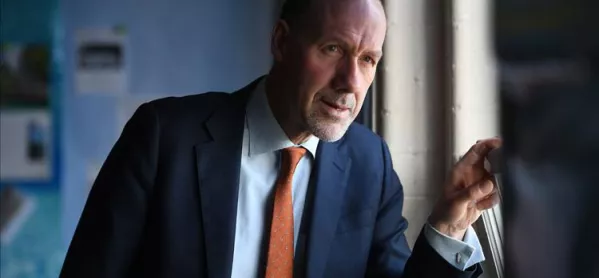- Home
- Coronavirus: To close or not to close schools?
Coronavirus: To close or not to close schools?

The words attributed to former prime minister Harold Macmillan when asked what was most likely to knock a government off course are well known: “Events, dear boy, events.”
Whether this is what he really said or not (it seems, like most quotations, to be the subject of some debate on the internet), those words sprang to mind as I watched schools move into the eye of the coronavirus storm.
Schools that innocently sent parties of children and staff skiing in northern Italy without realising that it was about to become the location of various “coronavirus hotspots” found themselves suddenly having to make the sort of decisions all school leaders dread.
Closing the school gates
To close or not to close? That was the question.
Many of us have been in this situation in the past over the rather less charged subject of “snow days” and can vouch for the fact that whatever decision you make you are likely to be in the wrong with at least someone.
The official advice with coronavirus is that anybody who has been in a category 1 hotspot should self-isolate for 14 days. So, sending home children and staff in this situation is in line with the guidance.
What is not in line with the guidance is closing the whole school. The fact that this is what some schools did inevitably led to the suggestion that they were overreacting.
Everybody will have their own views on this, but I’m not in the business of criticising schools for making difficult decisions in difficult circumstances. I’ve been there.
And I know that the reality is you are likely to have parents, staff, students and governors with a mix of strongly held views about what you should or shouldn’t do, and that all you can finally do is to make the best call possible in those circumstances.
The school leaders’ choice
So, if some school leaders decided in their context, taking account all the views around them, that it would be prudent to close the school and do a deep clean to assure everyone that there is nothing to worry about, then I can understand their decision.
What they probably don’t need is a legion of commentators and pundits then picking holes in their decision from afar.
Of course, we need to be careful about keeping things in proportion. The fact is that, at the time of writing, there were 15 confirmed cases of coronavirus in the UK.
The threat that this could increase warrants a precautionary approach but not a response which is unduly disruptive.
Exactly where that balance lies, however, is inevitably hard to navigate. Public Health England has attempted to do that in the guidance it has issued.
That guidance appears to me to be sensible and measured. But school leaders also have to take into account the need to provide reassurance to their parents, staff and students, so some might find the right balance is slightly different for them.
I suppose what I am saying is that this is an exceptionally unusual set of circumstances. All of us are trying to work out what is best to do. Let’s cut each other some slack.
An unfortunate series of events
Obviously, the story is far from over, and that is a concern for school and college leaders more than most because of their duty to protect the health and wellbeing of their school community.
Alongside that concern, and keeping up-to-date with the latest information and advice, they also have to do all the other stuff of school leadership.
At this time of year, much of that focus will be on preparing their students for their GCSEs and A levels - and hoping that the exams aren’t disrupted by coronavirus scares.
But let’s not get ahead of ourselves. The reality of school life is that there is very often a problem or crisis which blows in from beyond the school gates, just in the way that events can engulf governments.
The leaders of our schools and colleges will respond as they always do - calmly, professionally, conscientiously - providing reassurance in uncertain and anxious times.
And that’s the other thing about events. You need leaders who rise to the challenge.
Geoff Barton is general secretary of the Association of School and College Leaders
Register with Tes and you can read two free articles every month plus you'll have access to our range of award-winning newsletters.
Keep reading with our special offer!
You’ve reached your limit of free articles this month.
- Unlimited access to all Tes magazine content
- Save your favourite articles and gift them to your colleagues
- Exclusive subscriber-only stories
- Over 200,000 archived articles
- Unlimited access to all Tes magazine content
- Save your favourite articles and gift them to your colleagues
- Exclusive subscriber-only stories
- Over 200,000 archived articles



